Forty-one years ago, Marie DeBose emerged victorious from a battle with breast cancer.
To this day, she cherishes every moment she’s given—and she celebrates by reaching out to other women.
“I want to encourage women to get mammograms,” DeBose, 80, of Grand Rapids, Michigan, said. “And if they are facing cancer? I want to offer a message of hope.”
Don’t be afraid to get screened, she said.
If you’re facing cancer? Put on your prettiest outfit and your war face, she said—because this is a fight you can win.
A busy life
DeBose learned she had cancer at age 38. Mammograms aren’t recommended until age 40.
DeBose’s life changed one evening when joking around with her husband, she reached over to lightly punch his arm. Her right arm brushed against her right breast.
She felt a lump. It horrified her.
“I had only ever known one woman in my life who’d had breast cancer, as far as I knew,” she said.
At the time, DeBose lived a busy life. She didn’t get checked by a doctor right away.
“I worked full time, had five children and was going to school at Aquinas College at night,” she said. “It was easy to put it out of my mind.”
Master, her husband, let her get away with the head-in-the-sand approach for a few weeks.
“One night, he asked if the lump was still there,” she said. “I said yes. And he asked me why I hadn’t called the doctor.”
She admitted she felt frightened.
“If I have this cancer, I don’t want to know about it,” she told him. “He said, ‘Marie, if it’s cancer, you need to know. And the sooner, the better.'”
Fast-moving treatment
The next day, she called her primary care physician. She got into the office immediately. This quickly led to a consultation with F. Raymer Lovell, MD, a now-retired surgeon who specialized in breast cancer at Spectrum Health.
The appointment entailed a needle biopsy, two mammograms and an almost-certain diagnosis of breast cancer.
The doctor scheduled a surgical biopsy to be sure.
But first, DeBose had to head across town to take final exams—statistics, her hardest class.
It seemed like the longest Monday of her life.
Still, it gave her a chance to think about the diagnosis. She found her mind went quickly from “Why me?” to “Why not me?”
“I said, ‘OK, Lord, I may have cancer. But I’m not going to die with it. I’m going to go shopping to buy some clothes. I’m going to get the surgery and then come back home and wear them. And I’m going to take this stats exam tonight—and I’m going to pass.'”
She did every one of those things. And none of them came easy.
Within days, Dr. Lovell told her she needed a mastectomy. “It first felt like it just sucked the life right out of me,” DeBose said. “But I had the surgery the next day and was able to wrap my mind around it.
“Most of all, I kept remembering that quote: ‘It’s better to light a candle than curse the darkness.'”
She learned that four of the 22 lymph nodes Dr. Lovell removed were positive and that she’d need chemotherapy.
Another candle soon lit up her life: A volunteer from the American Cancer Society stopped in to see her in the hospital as she recovered from her mastectomy.
“She looked beautiful,” DeBose said. “Her clothes looked great on her. And she said, ‘I had the same surgery 11 years ago.’”
She spoke with DeBose about how effective reconstructive surgery would be when the time came for that. And she taught DeBose how to wear a surgical bra so she’d feel less self-conscious.
Like many women, DeBose had been apprehensive not just about the disease, but the impact on her physical appearance. The volunteer filled DeBose with hope.
“I made a promise to myself that day that I would do the same for other cancer patients.”
Pioneer for advocacy
In 1980, DeBose joined her daughter and her mom in attending American Cancer Society support groups.
“These people had many of the same reactions to chemo that I did,” DeBose said. “It made me feel I had somebody that could understand what it was that I was going through.”
She treated the months of chemotherapy as a personal challenge.
“I’d drive myself to my chemo appointments and then straight to work,” she said. “I never missed a day of work.”
She soon found the courage to speak to others about her illness.
“I just started talking to people wherever and whenever I could,” DeBose said. “I started encouraging women to get mammograms.”
Soon, she felt thickening tissue in her left breast, which turned out to be cancer as well. She had just finished her chemotherapy in 1981 when Dr. Lovell removed her remaining breast and she headed into another round of chemotherapy.
Although doctors pronounced her cancer-free five years after her diagnosis, she continued her advocacy work for decades.
To this day, she’s a tireless cheerleader for screening and awareness. She encourages these efforts in her own family—19 grandchildren, 10 great-grandchildren and one great-great-grandchild.
Still working in the Grand Rapids public schools, she’s also active in Grace for the Nations Church, which offers various types of health outreach.
This October, to celebrate Breast Cancer Awareness Month, she looks forward to the visit from the Spectrum Health Betty Ford Breast Care Services mobile unit at her church.
The 45-foot pink-and-white clinic on wheels uses state-of-the-art digital technology to make screening more accessible to women in Michigan.
This still gives DeBose a thrill.
For her, it always comes back to the same critical message, even after all these years: Schedule a mammogram and—if you’re battling cancer—never give up hope.
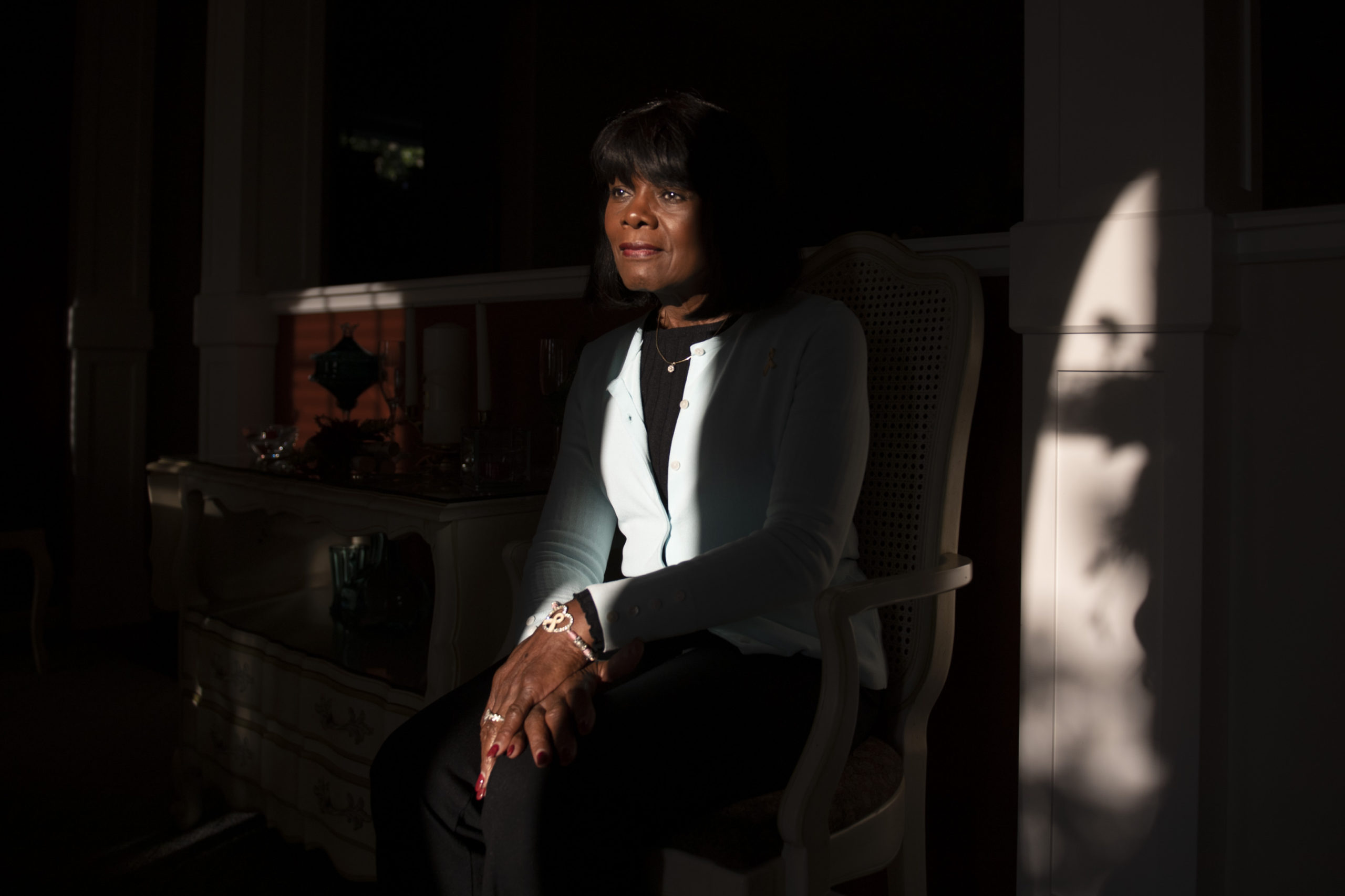
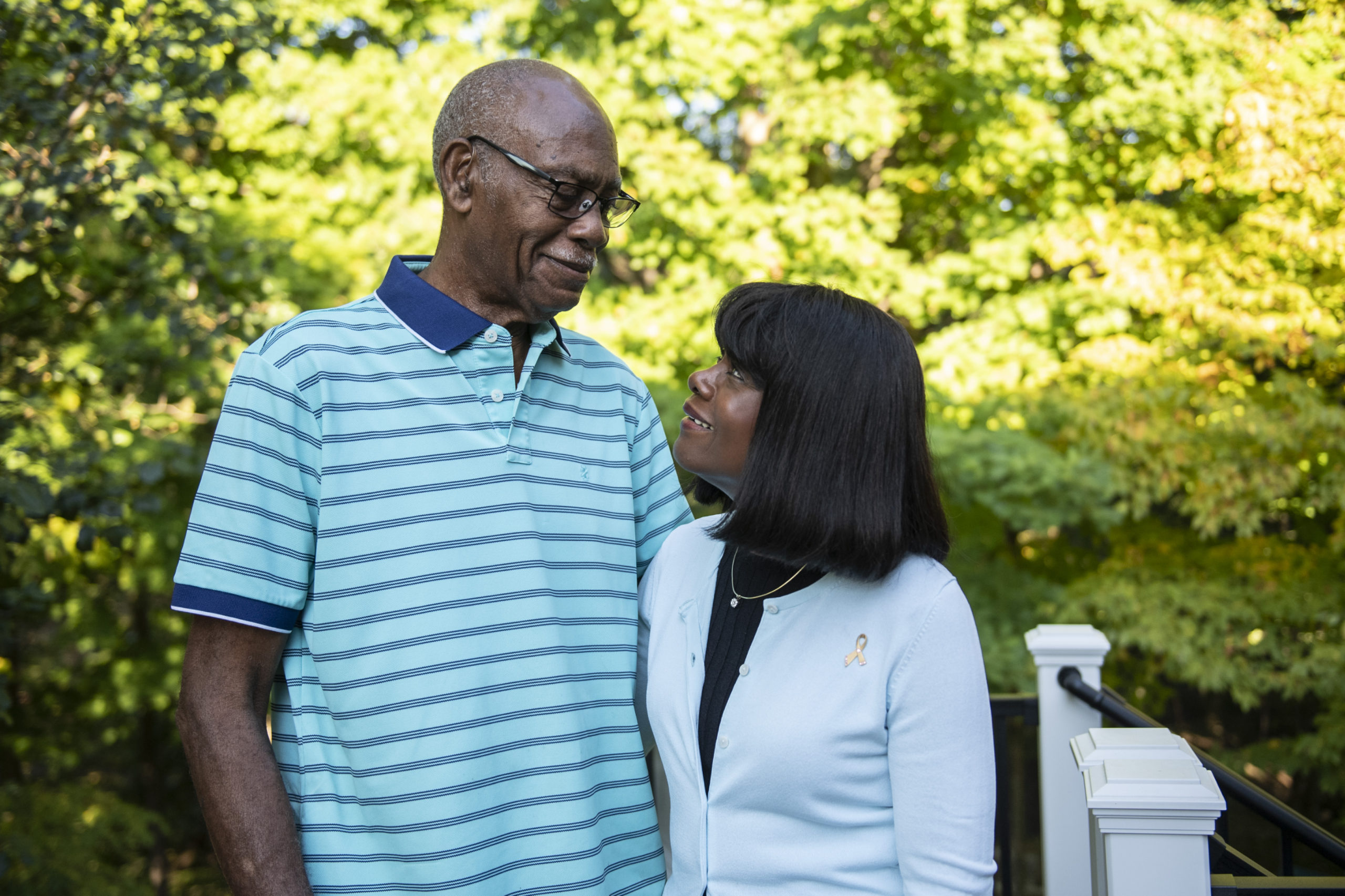
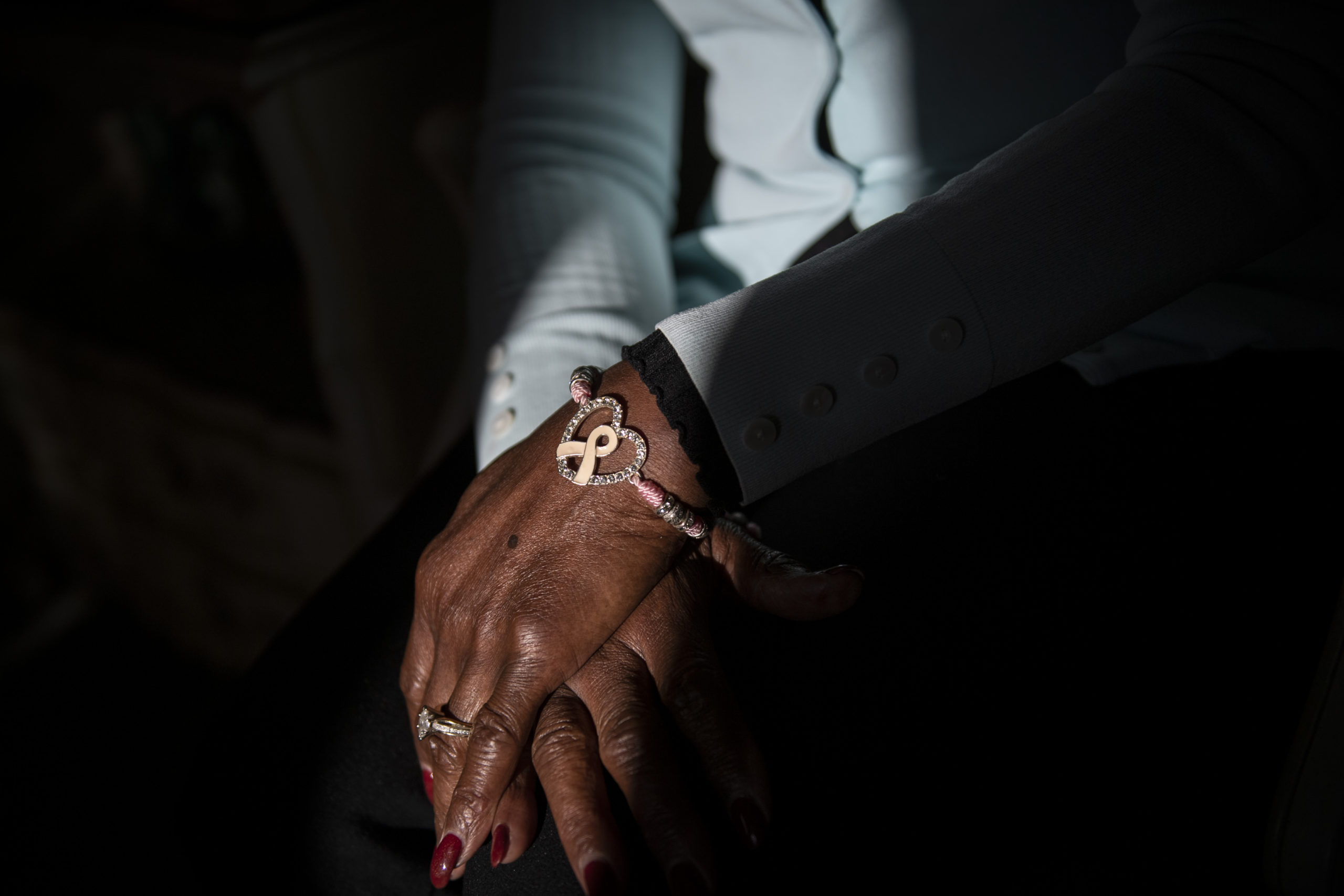
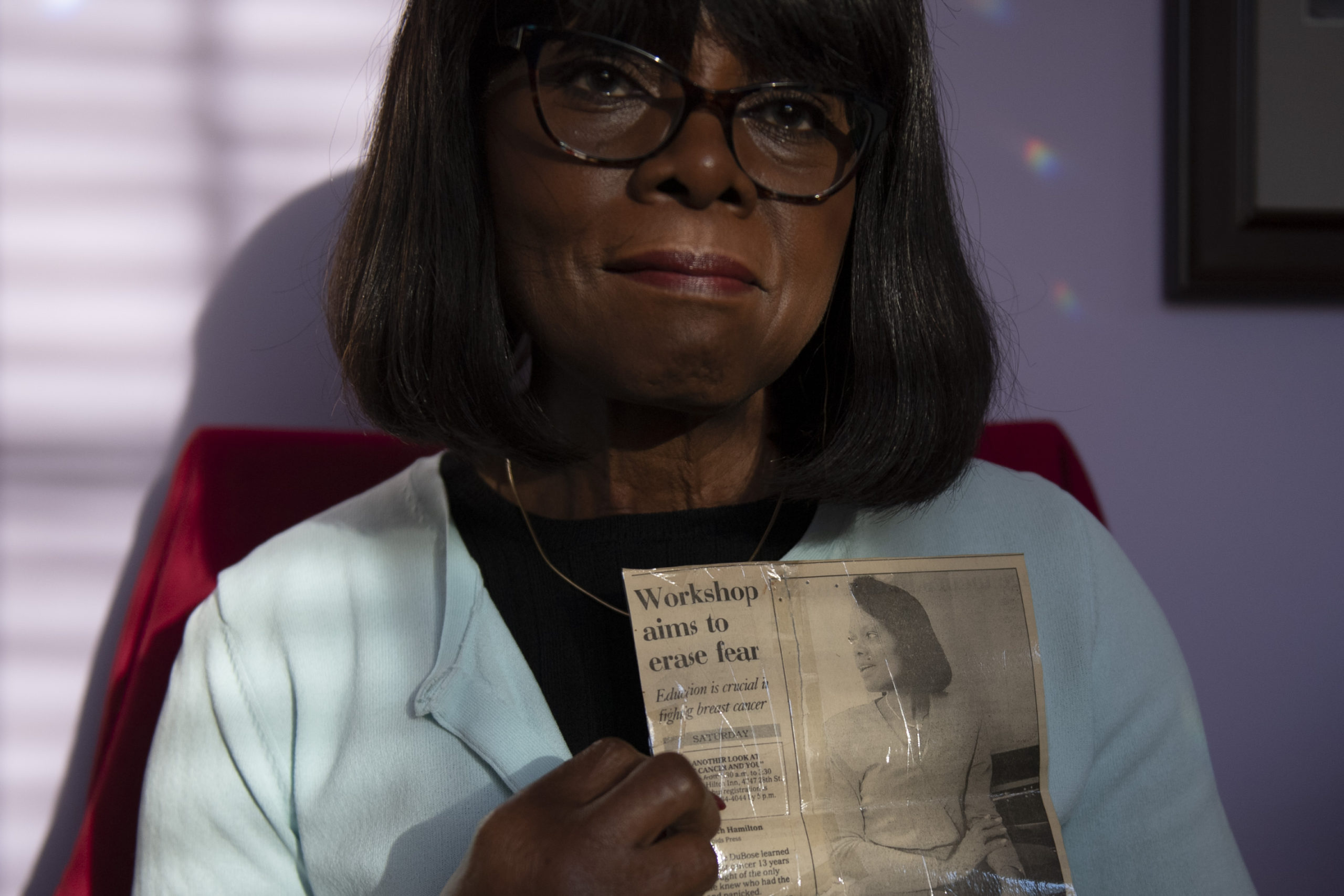
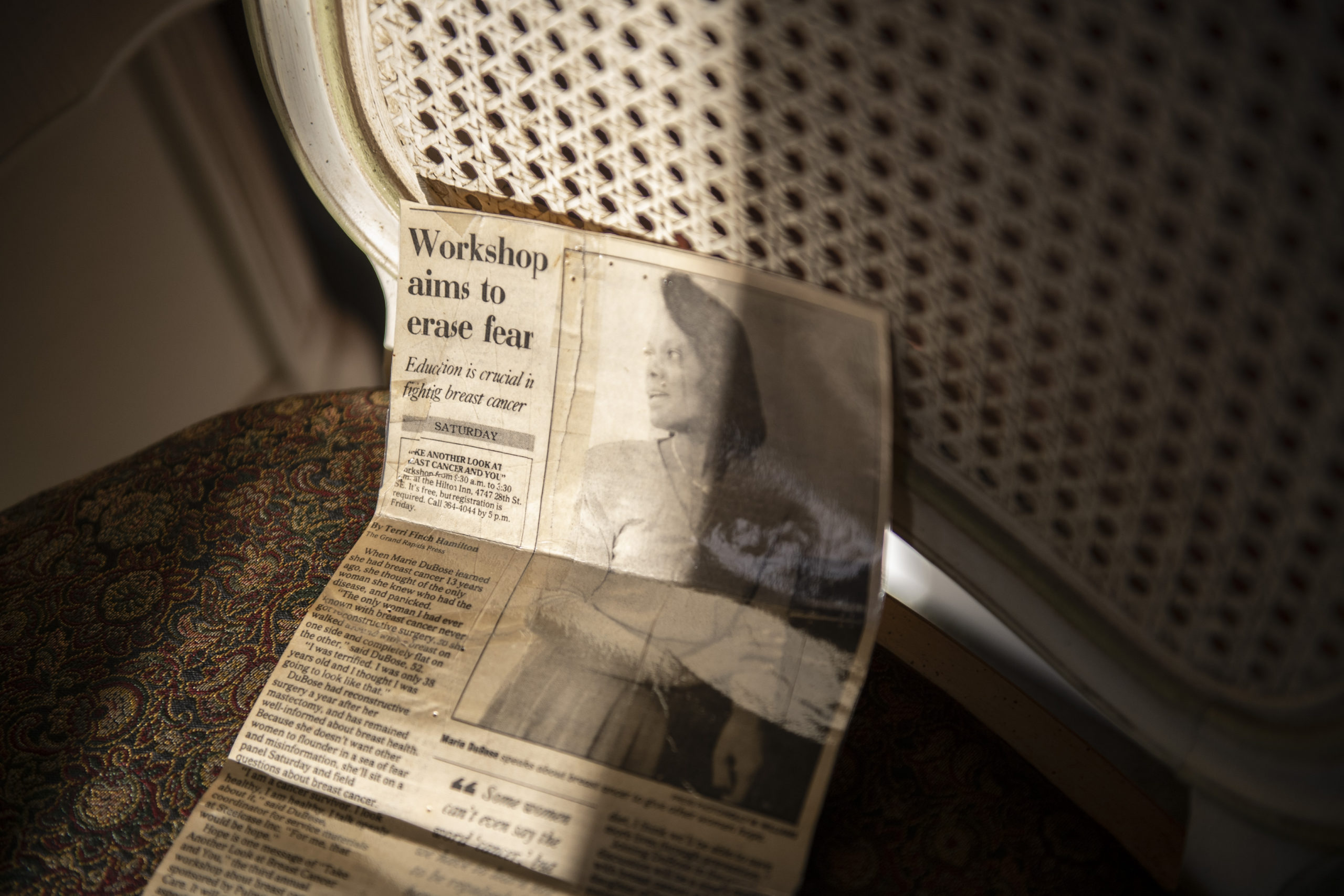

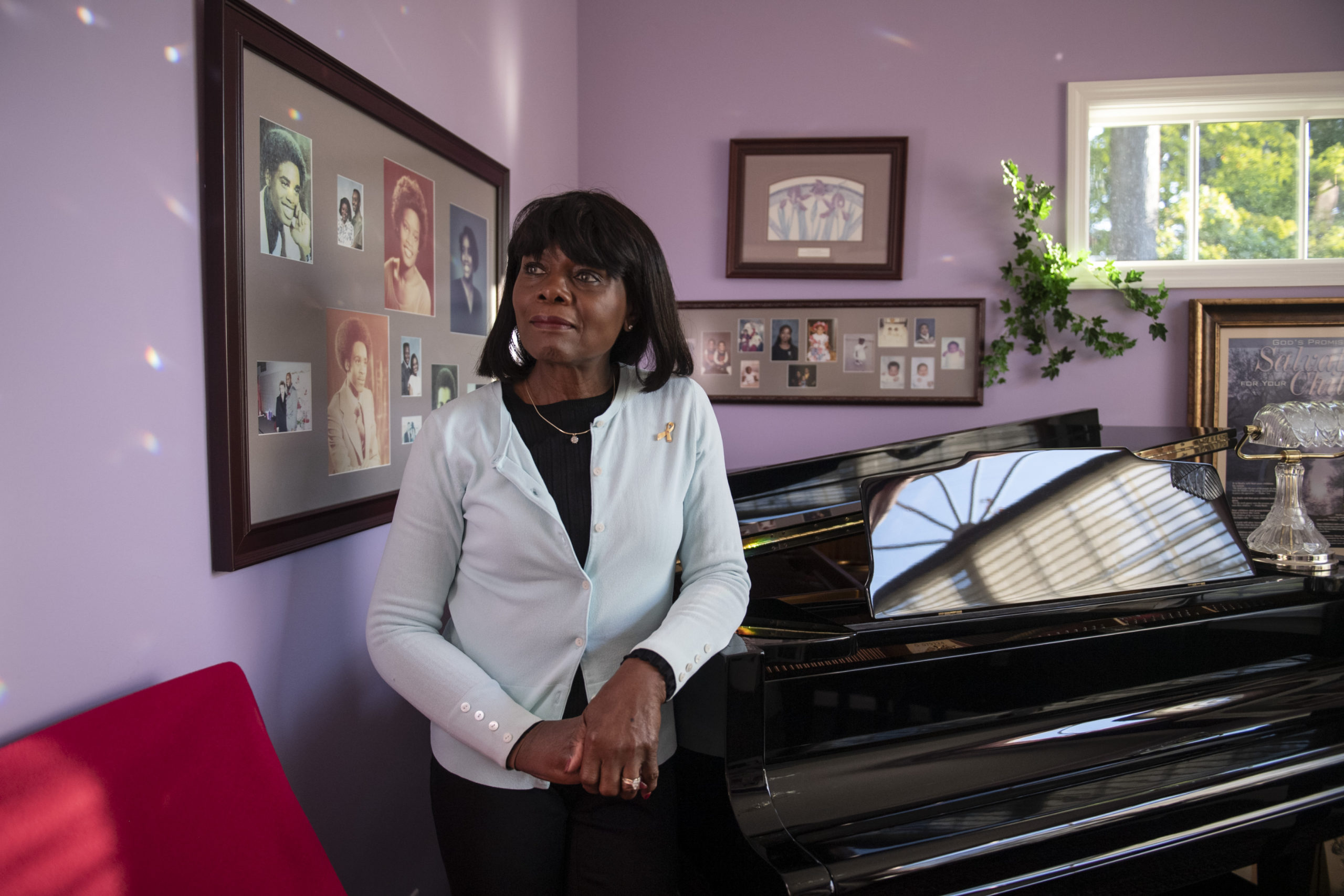
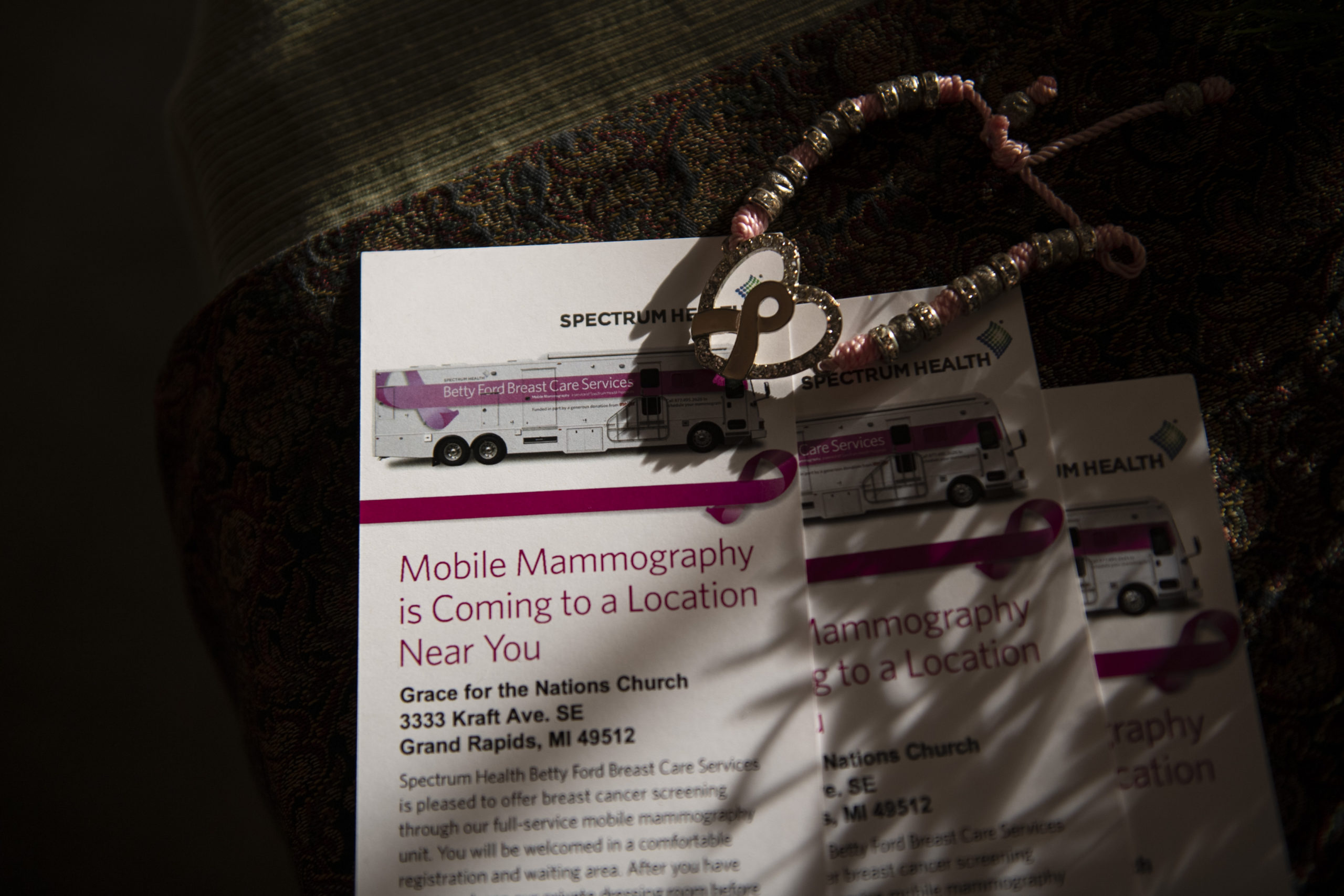
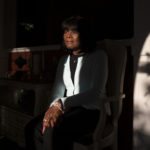
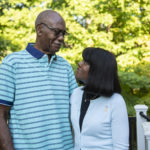
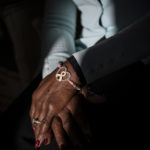
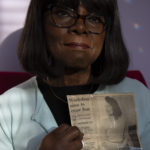
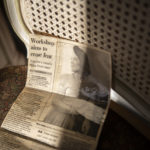
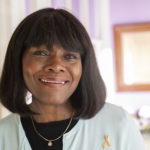
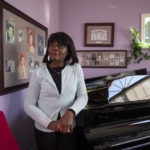

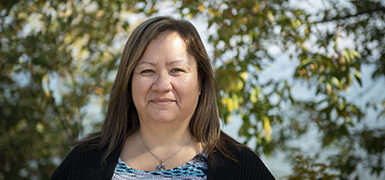 /a>
/a>
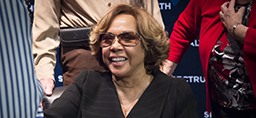 /a>
/a>
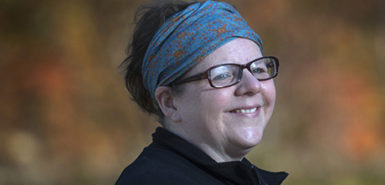 /a>
/a>
Wonderful story. An inspiration, personally, for me.